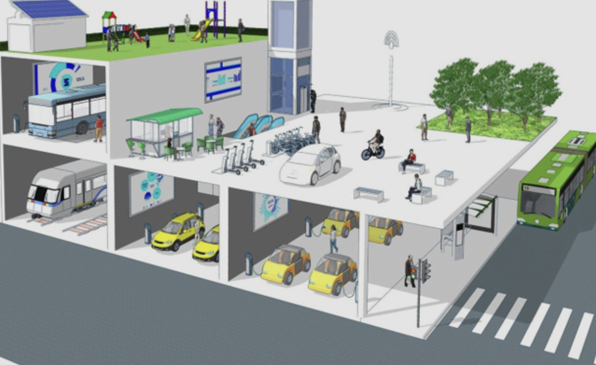How Micro-Mobility SaaS Software is Transforming OEM Operations in the B2B Market

As the micro-mobility sector continues to grow, Original Equipment Manufacturers (OEMs) of two-wheelers and light electric vehicles (LEVs) are presented with a new and exciting opportunity. The shift from vehicle ownership to shared usage models is reshaping the market, creating significant demand for robust fleet management solutions. For OEMs, this transition presents both a challenge and an opportunity to tap into the expanding B2B micro-mobility market.
Micro-mobility Software as a Service (SaaS) solutions are playing a critical role in this transformation. These platforms provide OEMs with the tools needed to manage fleets more efficiently, embrace technological innovations, and unlock new revenue streams while building long-term relationships with fleet operators, dealers and consumers.
Streamlining Fleet Management with Real-Time Data
Managing a fleet of e-bikes, e-cargo bikes, and other LEVs comes with its own set of challenges, from ensuring uptime to minimizing operational costs. One of the key advantages of micro-mobility SaaS solutions is the ability to manage fleets in real-time. With advanced tracking, diagnostics, and predictive maintenance features, OEMs can ensure that fleet operators can address issues proactively, reducing downtime and improving vehicle reliability. This allows for more efficient fleet operations, crucial in a business where uptime is essential.
Embracing Technological Innovations
The micro-mobility industry is rapidly evolving, with technologies like the Internet of Things (IoT) and digital locks becoming increasingly integrated into the products. For OEMs, it’s essential to have a software platform that can seamlessly incorporate these innovations. A well-designed SaaS platform can integrate IoT sensors for real-time data collection, enhance vehicle security with digital locks, and offer real-time fleet performance insights. This not only enhances the user experience but also allows OEMs to offer more value to fleet operators, ensuring that they remain competitive in the market.
Installing SaaS Software at the Factory Level
To fully leverage the benefits of micro-mobility SaaS platforms, OEMs should consider pre-installing the software during the manufacturing process. By embedding the software directly into the vehicle at the factory, OEMs can ensure seamless integration between hardware and software components, optimize performance from day one, and eliminate the need for post-sale retrofitting.
This approach simplifies onboarding for fleet operators, reduces setup time, and offers a plug-and-play experience. Moreover, factory-level installation ensures that the vehicle is ready for immediate deployment in shared or B2B environments, strengthening the OEM’s position as a value-added partner in the mobility ecosystem.
Unlocking New Revenue Streams
The shift from ownership to use has opened up new avenues for revenue generation. OEMs now have the chance to collaborate with dealers and fleet operators to develop mobility services that extend beyond the traditional vehicle sale. SaaS platforms enable the easy sharing of vehicles, automated billing, and integration of maintenance schedules—all of which help create scalable business models. This shift allows OEMs to not only generate revenue through vehicle sales but also through services and ongoing maintenance, fostering long-term partnerships with fleet operators.
Building Long-Term Customer Relationships
With the increasing shift to micro-mobility solutions, OEMs have an opportunity to build stronger, more sustained relationships with fleet operators. A SaaS platform provides OEMs with valuable data on fleet usage, vehicle performance, and customer preferences, which can be used to develop more tailored services and enhance customer engagement. By offering ongoing support, software updates, and integrated services, OEMs can ensure that fleet operators get the most value out of their vehicles, resulting in stronger, long-term business relationships.
Data-Driven Decision Making
Data is at the heart of effective fleet management. SaaS platforms offer OEMs actionable insights into how their fleets are being used, when vehicles need maintenance, and how to improve operational efficiencies. This data-driven approach allows OEMs to make informed decisions about vehicle design, service offerings, and maintenance schedules. It also gives fleet operators the tools they need to maximize the efficiency and profitability of their operations.
Conclusion
Micro-mobility SaaS solutions are becoming essential for OEMs looking to stay competitive in the rapidly expanding B2B market. By embracing these technologies, OEMs can streamline fleet management, incorporate advanced innovations, unlock new revenue opportunities, and build long-term relationships with fleet operators. As the industry continues to evolve, those who leverage the power of SaaS will be well-positioned to succeed in the future of urban mobility.



